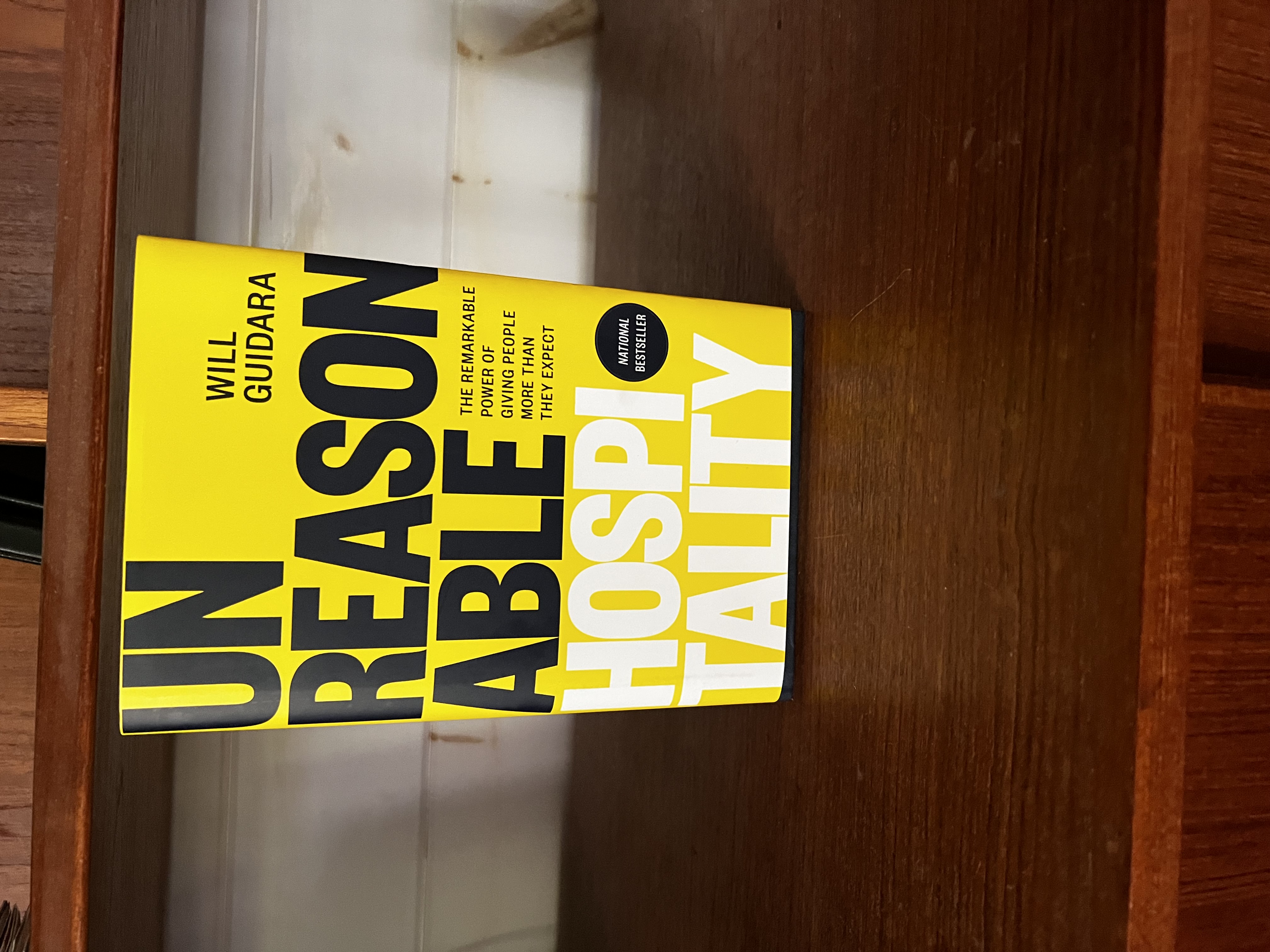
In Unreasonable Hospitality: The Remarkable Power of Giving People More Than They Expect, Will Guidara writes about how his York City restaurant (co-owned with Daniel Humm), Eleven Madison Park, came to be named the World’s 50 Best Restaurants in 2017.
The book appealed to me because I am always looking to learn strategies for creating unforgettable experiences. When I turned to chapter two entitled “Making Magic In A World That Could Use More of It ” I realized the book would transcended rules specific to the hospitality industry.
This book is as much about exceptional leadership in 2023 as it is about exceptional hospitality. If I could pick one book on leadership development, it would be this one, with each chapter revealing foundational and nuanced leadership lesson gems.
Will Guidara’s Leadership Lessons
1. One Team: Historically, restaurants operated on the two-team model, with the front of the house servicing the guests and the back of the house preparing the food. The book illustrates that this two-team model leads to a lack of cooperation, low trust levels, incivility, and a fractured guest experience. When teams are unified, commitment and innovation are accelerated based on trust, psychological safety, communication and collaboration. The secret sauce is a culture of active listening and a relentless focus on the team’s vision and mission.
2. Hospitality is Universal: While hospitality may seem limited to service-based businesses, Guidara demonstrated how hospitality can revitalize any business. “When you create a hospitality-first culture, everything about your business improves—whether that means finding and retaining great talent, turning customers into raving fans, or increasing your profitability.” Guidara illustrates that hospitality can take teams from ordinary to exceptional when consistently applied. Leaders embracing this hospitality mindset can be a critical and positive differentiator in the eyes of their employees, stakeholders and customers. The numerous successes of Eleven Madison Park under Guidara’s leadership demonstrate hospitality’s transformative power.
3. Set Ambitious Goals and Empower Your Team: Guidara and co-owner Daniel Humm set an audacious goal of building Eleven Madison Park into the world’s number-one restaurant. He understood the significance of sharing his ambition with his team, creating a lofty shared goal. Guidara writes, “It was a tremendous risk to articulate that dream out loud. When you set a goal for your team and fail to achieve it, you run the risk of damaging morale and this was a particularly audacious benchmark. At that meeting, we were inviting the team to decide to go for it with us.” Guidara demonstrates how a unified aspirational goal can create the tenancy and ingenuity to overcome monumental obstacles, including the 2008 U.S. recession, by offering opportunities for skill development and nurturing an environment where innovation and creativity could still thrive.
4. Empathy as a Core Value: Empathy is a central theme woven throughout the book, and it’s a valuable trait that leaders and teams in any industry can leverage. Guidara illustrates how to engage with empathy to better understand customer needs and pain points, create an emotional connection with guests and staff to increase trust and loyalty and embrace feedback to develop innovative solutions while heightening team commitment and camaraderie.
5. Build Your Legacy. Creating a legacy is the genuine test of a great leader as readers learn Guidara and Humm (Chef and Eleven Madison Park co-owner) part ways in early 2020. Exercising humility and gratitude, listening to the advice of wise elders, and putting one’s team before one’s self were among just a few lessons I gleaned from this final chapter.
From making it cool to care, to improvisational hospitality, to hiring the person, not the resume, to tapping into the team’s passion and then giving them the keys, Unreasonable Hospitality is a must-read for leaders pursuing a culture of excellence and engagement.


